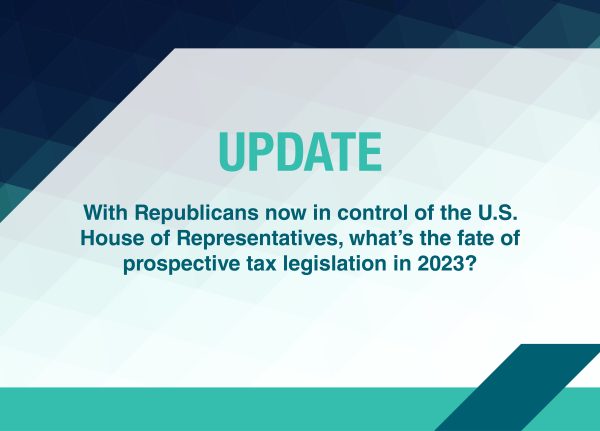Once upon a time, there was the Internet. Relatively speaking, it was easy to understand. The Internet was (and is) a network on which any computer on the planet can communicate with other like-connected computers, enabling users to correspond and share files. But the Internet wasn’t (and isn’t) satisfied with only computers. It wanted to connect […]
If you’re a parent, you may be confused about the rules for claiming the Child Tax Credit (CTC). The rules and credit amounts have changed significantly over the last six years. This tax break became more generous in 2018 than it was under prior law — and it became even better in 2021 for eligible […]
It can be challenging to keep track of which accounting rules are changing, when the changes kick in and for which types of entities. Plus, implementing the necessary revisions to your organization’s procedures and systems often takes time and resources. Here are five updates that go live for certain entities this year. Targeted improvements for […]
The 2022 mid-term election has shifted the scales in Washington, D.C., with the Democrats no longer controlling both houses of Congress. While it remains to be seen if — and when — any tax-related legislation can muster the requisite bipartisan support, a review of certain provisions in existing laws may provide an indication of the […]
Two techniques fall under the income approach umbrella when valuing a private business interest: the discounted cash flow (DCF) method and the capitalization of earnings method. How do these two commonly used methods compare — and which one is appropriate for a specific investment? Fundamentals of discounting The DCF method estimates the present value of […]
Business owners: If you’re having trouble reading the U.S. economy, you’re not alone. On the one hand, the January 2023 jobs report revealed that the unemployment rate had fallen to 3.4%, its lowest level in 54 years. And inflation, while still a concern, has moderated in most sectors — staving off fears of a recession in the […]
Many people are more concerned about their 2022 tax bills right now than they are about their 2023 tax situations. That’s understandable because your 2022 individual tax return is due to be filed in 10 weeks (unless you file an extension). However, it’s a good time to familiarize yourself with tax amounts that may have […]
Accounting is a critical element when launching a successful business venture. Unfortunately, it’s also an area where startups tend to make mistakes. Here are some common (and avoidable) errors that entrepreneurs should watch out for. Failing to track expenses Starting a new business is exciting — and it’s natural to focus on generating revenue and […]
A revocable trust — sometimes known as a “living trust” — can provide significant benefits. They include the ability to avoid probate of the assets the trust holds and facilitating management of your assets in the event you become incapacitated. To obtain these benefits, however, you must fund the trust — that is, transfer title […]
The U.S. Department of Labor (DOL) recently announced the 2023 annual adjustments to civil monetary penalties for a wide range of benefits-related violations. Legislation enacted in 2015 requires annual adjustments to certain penalty amounts by January 15 of each year. The 2023 adjustments are effective for penalties assessed after January 15, 2023, with respect to violations occurring […]
Most retirement plan distributions are subject to income tax and may be subject to an additional penalty if you take an early withdrawal. What’s considered early? In general, it’s when participants take money out of a traditional IRA or other qualified retirement plan before age 59½. Such distributions are generally taxable and may be subject […]
When companies report financial results, they often rely on estimates made by management. Examples include the allowance for doubtful accounts, warranty obligations, costs of pending litigation, goodwill impairment and the fair values of acquired intangible assets. How do auditors evaluate whether amounts reported on the financial statements for these items seem reasonable? Inquiry and testing […]












